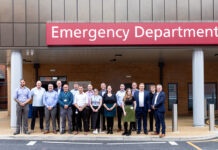A study has found that the voluntary, community, faith and social enterprise (VCFSE) sector played a ‘crucial’ role supporting Greater Manchester communities during the COVID-19 pandemic and vaccine rollout – but that their contribution has been undervalued and under-recognised by the wider health system.
The research examines the unmet healthcare needs of marginalised communities in Greater Manchester during the pandemic and how community-based organisations and networks stepped up to help address these challenges.
Led by researchers at the University of Manchester and the National Institute for Health and Care Research (NIHR) Applied Research Collaboration Greater Manchester (ARC-GM), the study highlights the frustration, fear and loss of faith in the healthcare system from people within these communities, who felt they were not supported sufficiently by mainstream services.
VCFSE organisations and community networks mobilised to meet health and wellbeing needs, such as providing food and care packages to vulnerable households, food bank services, support for people experiencing homelessness, and online support groups.
The research found that these community-based approaches were deemed crucial to the success of the vaccination drive thanks to the unique position to reach members of diverse communities to boost uptake of the vaccine.
These efforts included VCFSE group helping run vaccine pop-up sites in community spaces, such as mosques and other religious sites, children’s centres, and local specialist charities such as refugee and sex worker charities.
The findings suggest that the support delivered by the VCFSE sector remains under-recognised and under-valued by the health system and decision-makers, and has prompted calls for more inclusive, community-driven solutions in future health crises.
Lead author Stephanie Gillibrand from The University of Manchester and NIHR ARC-GM, said: “The important contribution of community engagement initiatives during the pandemic and vaccine rollout is made clear in this study. Not only did VCFSE organisations and community-led networks provide significant health and wellbeing support to people across Greater Manchester, but they also played a pivotal role in building trust within hard-to-reach communities to help boost vaccine uptake.
“The value of this work needs to be recognised and learned from so steps can be taken to remove the current barriers within the health system that are stifling effective joined-up working with VCFSEs.
“Our study underscores the need to create a broader, more inclusive system which allows and promotes cross-sector collaboration, with flexibility and adaptability at the heart of future service delivery.
“With the right mechanisms in place, there is real potential to harness capacity to tackle inequalities and build trust through shared learning and greater collaborative working.”







